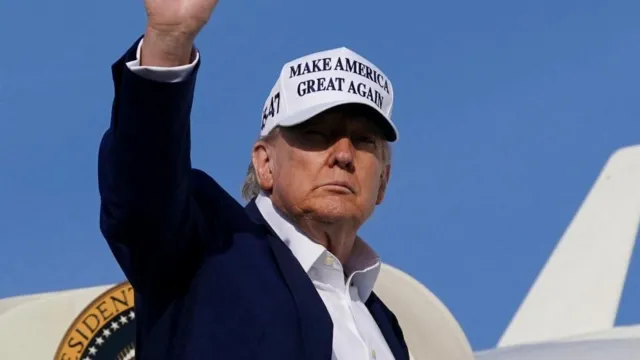In a major blow to President Donald Trump’s trade agenda, the U.S. Court of International Trade has blocked his sweeping “Liberation Day” tariffs, ruling that the president overstepped his authority in imposing unilateral import taxes on nearly all U.S. trading partners.
The court found that the International Emergency Economic Powers Act (IEEPA), which President Trump cited to justify the tariffs, does not grant him the power to bypass Congress and impose such extensive economic measures. The Constitution, the court said, clearly reserves the authority to regulate foreign commerce to Congress.
The ruling came after a lawsuit filed by the Liberty Justice Center on behalf of five small businesses that import goods from countries affected by the tariffs. These duties, introduced in April, placed a baseline 10% tariff on most imports and up to 145% on Chinese goods, as part of President Trump’s strategy to protect American manufacturing and address what he called a “national economic emergency.”
While the court’s decision does not cover tariffs on specific goods such as steel, aluminium, and automobiles—which fall under different legal provisions—it does strike down the broader tariff regime affecting dozens of nations, including China, Mexico, Canada, and the EU.
The White House, which has already filed an appeal, criticized the ruling. Deputy Press Secretary Kush Desai stated, “It is not for unelected judges to decide how to properly address a national emergency.” He reaffirmed President Trump’s commitment to an “America First” economic policy.
On the other hand, New York Attorney General Letitia James, whose state was among 12 backing the lawsuit, welcomed the ruling. She warned the tariffs were effectively a tax hike on working families and businesses.
Markets reacted positively, with global stocks climbing and the U.S. dollar strengthening. Analysts noted the ruling brings legal clarity and may limit executive overreach in trade policy.
If higher courts uphold the decision, businesses could receive tariff refunds with interest, and President Trump’s tariff-driven trade negotiations may face significant delays or collapse entirely.
The White House now has ten days to begin the formal process of halting the affected tariffs.

